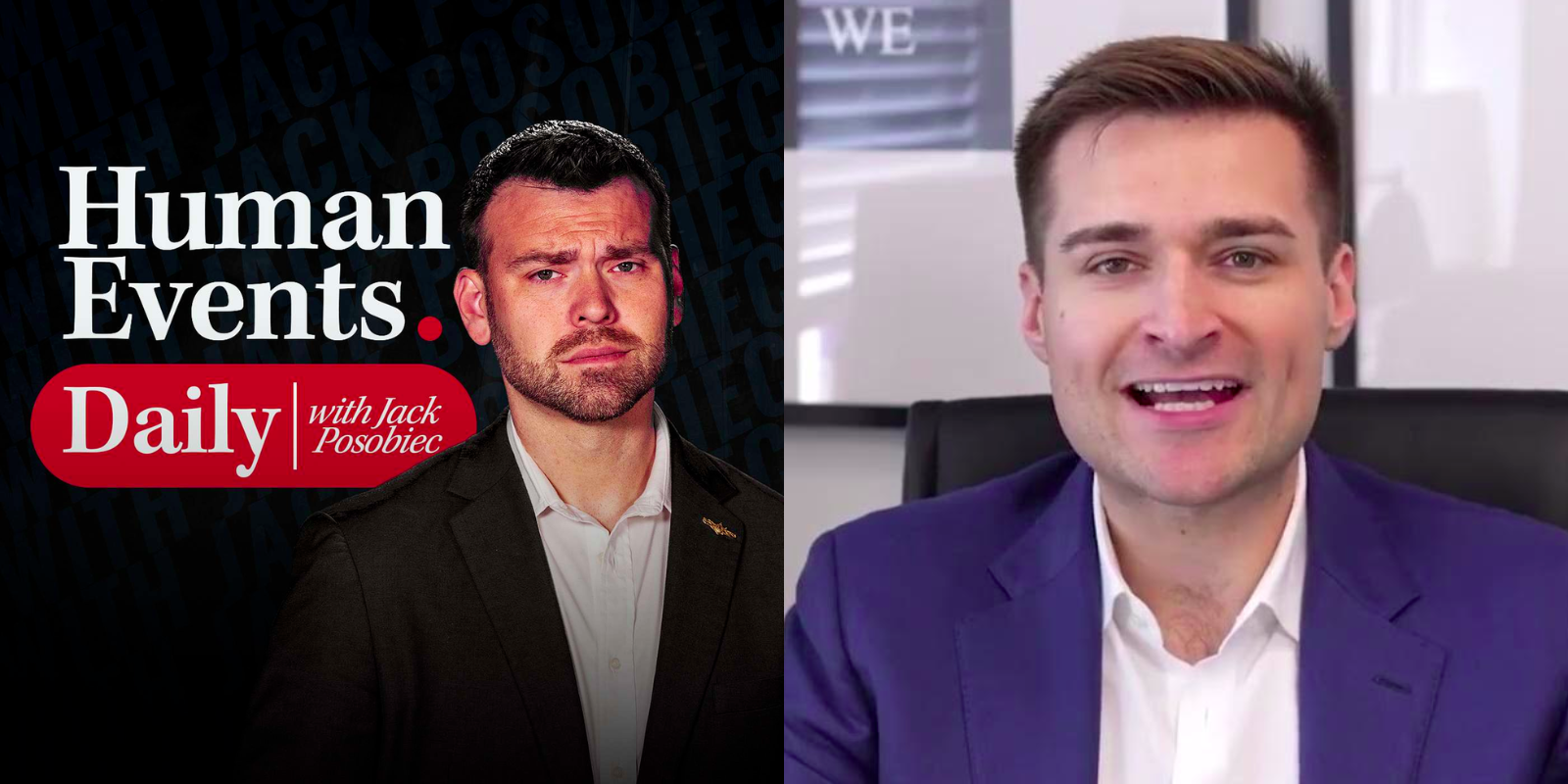The UK Independence Party (UKIP) entered this European Parliament session with 24 seats. It now has just three.
Nearly five years since Nigel Farage drubbed the political establishment and led UKIP to becoming the first non-major political party to win a national election in 100 years, the party is now polling at levels it hasn’t seen in 20 years.
The latest three polls (YouGov/ComRes/YouGov) place the party on an average of six points.
The party’s demise has certainly been assisted by the launch of Farage’s new Brexit Party - a cross-party, cross-philosophy phenomenon borne out of equal parts frustration at the government’s handling of the Brexit process, and Farage’s falling out of love with UKIP.
The love isn’t lost going the other way, either.
Die-hard kippers, including its current leader Gerard Batten, point the finger of blame for their misfortunes and for the misfortunes of the Brexit process squarely at Farage.
“Farage left us,” the refrain of the cyber-kipper goes.
“Farage left us,” the refrain of the cyber-kipper goes.
“He’s been bought off!” Some of them claim.
None of these things are close to the truth, of course. But activists fearful of political oblivion and irrelevance are looking for a boogeyman to blame, and they simply cannot countenance the idea of looking under the hood to the poor party Gerard Batten has created.
Taking UKIP over from Farage was always going to be an impossible task. I should know, I contemplated trying, myself. But for those who aren’t aware of his capabilities: Farage is a machine.
[caption id="attachment_13194" align="alignnone" width="6720"] Nigel Farage speaking with attendees at the 2018 Student Action Summit hosted by Turning Point USA at the Palm Beach County Convention Center in West Palm Beach, Florida. Image by Gage Skidmore[/caption]
Nigel Farage speaking with attendees at the 2018 Student Action Summit hosted by Turning Point USA at the Palm Beach County Convention Center in West Palm Beach, Florida. Image by Gage Skidmore[/caption]
Even in semi-retirement following the successful Brexit vote, his work day included endless meetings, a national radio show, and of course elongated trips to the pub and his favored London eateries. Like the mischievous schoolboy his teachers portrayed him as in media interviews, he just cannot sit still.
Over the past few years he has been banging the drum for Brexit on his hit LBC radio show, holding the Prime Minister and her government to account on a daily basis, more effectively than even the leader of the opposition, Jeremy Corbyn, has managed.
As a campaigner, Farage would be the first awake in the morning - no matter how heavy the night before was - and the last one out on the streets knocking on doors, often well after dark. It would scarcely surprise me if when calculated, he had circumnavigated the globe in footsteps taken when campaigning across the country over the past quarter century.
And that’s precisely how long he’s been going at it.
Through victories and defeats, frustrations and elation, violence and peacetime: he is, despite what the media tells you, one of Britain’s best loved political figures, and one of President Donald J. Trump’s most favored people, too.
Put it this way: if Farage was Prime Minister, the Anglo-American relationship would be greater than under Reagan and Thatcher. Which says an awful lot.
But die-hard UKIPers are still not pleased with him.
OH, TOMMY TOMMY
Opining on the Tommy Robinson movement - which ballooned after the British political activist was wrongly jailed for reporting on Muslim rape and grooming gangs - Farage said: “I know what will happen. [Their march] will be full of skinheads and people with tattoos to the eyeballs, they’ll all be drunk before they get there, there’ll be punch-ups and God knows what.”
It is impossible to find a pro-European Union Tommy Robinson supporter, so naturally Farage’s comments left many who voted for him, UKIP, and Brexit feeling betrayed.
And while there is often a tiny contingent of people who go to Tommy Robinson rallies looking for trouble, this wasn’t what people like me had tried to shape the movement into while Tommy was incarcerated, and it certainly wasn’t what played out on the streets on London on the day that concerned Farage.
[caption id="attachment_13199" align="alignnone" width="6000"] Tommy Robinson demonstration in Copenhagen, Denmark. Image by Kristoffer Trolle[/caption]
Tommy Robinson demonstration in Copenhagen, Denmark. Image by Kristoffer Trolle[/caption]
But while some would argue Farage needs to look a little closer at Robinson’s fans to understand how diverse that movement has become, they also owe Farage - their godfather of Brexit - an understanding over his protectiveness of the Brexit cause.
Farage put the majority of his life into the Brexit cause. He has remortgaged houses. He has been in car crashes, plane crashes, and fought off testicular cancer. He has lost two wives to his career, and has a strained relationship with his four children as a result of “daddy never being home”.
In a sense, Brexit is a fifth child of his, and he’s defending it against what he knows is a political establishment desperate to find a chink in its armor.
So when Farage successor Batten invited Tommy Robinson to be his personal advisor, Farage saw it as a move that would allow the media to demonize Brexit. He was right.
UKIP was tarnished immediately by the endless, incorrect smears of Tommy. Batten barely blinked, however, knowing that embracing Robinson was critical to his continuation as UKIP leader.
Shortly after taking over the party, Batten realized he had no road ahead of him. The Brexit issue was dominated by the establishment and the civil service. It was now out of UKIP’s hands. So he turned to Tommy for help. But not before saying similar things to me that Farage said in public.

In a text message from June 6th, Batten said: “I am not sure I want to attend this [Free Tommy] demo. Most I have never heard of. Only Geert Wilders one I would like to share a platform with.”
“I am not sure I want to attend this [Free Tommy] demo. Most I have never heard of. Only Geert Wilders one I would like to share a platform with.” - Gerard Batten
That rally included speakers such as Shazia Hobbs, Liam Tuffs, Nisar Hussein, and I even read a statement from the former chief strategist to President Trump, Steve Bannon, on stage.
And that wasn’t the extent of Batten’s cautiousness and duplicity towards Tommy’s supporters.
In another text dated Friday, June 29th 2018, I invited Batten to attend the upcoming Free Tommy rally which I helped organize at Tommy’s request in conjunction with the Middle East Forum in the United States.
Gerard replied, “Very wary after the rough stuff at the last one. I know Tommy was dismayed at that, counter productive”.

In truth, we were all dismayed at the (very small amounts of) “rough stuff” on display at the previous rally, but that’s what a tiny minority come to Tommy’s events come for. To be idiots. And we were becoming increasingly effective of either calming them down or excluding them entirely. Batten’s original refusal to attend was a sign of his opportunism surrounding the Free Tommy movement, and his further refusal to challenge the party’s national executive committee over allowing Tommy to formally join the party another sign that he was trying to do a “one foot in one foot out” strategy with Tommy’s supporters.
Meanwhile, Farage was fuming that Batten was entertaining a brand that he felt would alienate many non-nationalistic Brexit voters. The Tory shires and the moderate left (who we needed to win Brexit) would not countenance an affiliation with a man their favored newspapers call a “racist thug” or whose supporters were trying to climb the gates of Downing Street. Understandable.
Tommy himself is far less concerned with Brexit than he is with child grooming, social cohesion, and terrorism, either. His words to me on the matter have reflected this, and after numerous conversations on the topic, I have no doubt he feels as used by Batten as he feels angry at Farage for maligning him and his supporters. But these are words he will have to say himself, when the time is right.
[caption id="attachment_13203" align="alignnone" width="5568"] Author Raheem Kassam hosts the Free Tommy rallies in London, Summer 2018. Image by Stuart Mitchell[/caption]
Author Raheem Kassam hosts the Free Tommy rallies in London, Summer 2018. Image by Stuart Mitchell[/caption]
“I’ve held my silence as a former party leader until now but we now have to get rid of this bloke as leader because he’s not just damaging Ukip, he’s damaging Brexit,” Farage said of Batten’s convenient bromance with Tommy.
But it was too late for Farage to save UKIP from taking the media bait and lurching into a territory they didn’t have the ability to message, nor navigate. The party was poorly equipped in a financial sense. It was poorly equipped in a staffing sense. And it was barely even fielding any candidates at local elections in 2018. The media smelled blood, and they got it. Batten played right into their hands.
THE AFTER (FARAGE) PARTY
Even prior to Farage’s Brexit Party launch, UKIP was only mustering between 10 and 18 points in the polls. For a party solely known for its influence on the Brexit issue, one would have imagined they would’ve been easily able to command in excess of 20 per cent of the vote at least. But it wasn’t so.
Critics will point to the “lack of coverage” by the mainstream media. But typically, the media will only cover something when two parameters are met: 1) Something is interesting; 2) The party’s communications team effectively sells the narrative to journalists.
This means being good at two things: planning and messaging. Something UKIP hasn’t been successful at since 2016.
When Farage left, so did most of his staffers.
When Farage left, so did most of his staffers.
Chris Bruni-Lowe, the mastermind of the 4 million votes the party received in 2015. Gawain Towler, possibly the most loved spinner in Westminster. John Gill, the “nice chap” who used to grind out the most difficult of work against all odds. Oh, and me, of course.
And it wasn’t because of Farage, either.
The party made it clear at the highest levels that it wanted to “move on” from the Farage era. So all the Faragists naturally moved on, even though some of us tried not to.
The teams brought in under Diane James, Paul Nuttall, Henry Bolton, and Gerard Batten became increasingly inept, through no other fault than inexperience and naivety.
This doesn’t absolve Farage entirely, of course. His support for James and Bolton was hardly wise, though given the lists of candidates available for leadership at the time, I would scarcely have done better.
THE BREXIT PARTY
“It’s just Tory lite!” comes the common refrain from the Johnny-come-lately, scorned UKIPers.
To some extent, that is true, but will only be surprising or irksome to those who don’t understand the heritage of the party, from the Anti-Federalist League to the post-Maastricht Tory rebellions via the Bruges Group and others.
[caption id="attachment_13204" align="alignnone" width="1400"] Alan Sked and Nigel Farage with their “battle bus” during the Newbury by-election 1993. Image from LSE Library[/caption]
Alan Sked and Nigel Farage with their “battle bus” during the Newbury by-election 1993. Image from LSE Library[/caption]
In other words, most Euroscepticism in the United Kingdom finds its roots on the right of the Conservative Party, as one might expect when considering the nature of national sovereignty and anti-globalism.
While the Tory Party shifted to the neo-liberal part of the political spectrum - endorsing “free markets” and “free movement” in an attempt to placate their friends in the capital markets - there remained (primarily due to the two party system) a significant number of small-c, Eurosceptic Tories, causing merry hell for Prime Ministers from Major to May.
And philosophically, most of us (yes, I said us) are small-c conservatives and even more socially conservative than the British establishment would like or could countenance. That’s also why many of the leading public figures on the right in the United Kingdom get along so well with our Central European and American colleagues.
This is another dividing line between the old Tory right and the Tommy Robinson movement. The former is far more conservative, while the latter is far more liberal. The former is more inclined towards personal responsibility and even things like reforming the National Health Service to being less state-run. The latter would never believe in such things.
Whether they would ever admit it, these two movements are separated by more than just egos or mean words going both ways. They are philosophically distinct.
Whether they would ever admit it, these two movements are separated by more than just egos or mean words going both ways. They are philosophically distinct.
But the Brexit Party is also acutely aware that it must reach beyond the Tory shires who think the same way as the Maastricht rebels. The party’s candidates now include working class advocates for Britain’s fisheries, a former Marxist from the Labour Party, a former Conservative Party minister, and successful business people from all around the country.
And no, I do not believe all the candidate selections for the Brexit Party are perfect. But they sure beat the moribund UKIP offering featuring many of the party’s older guard, councillors, and of course the YouTube stars.
SARGON AND DANKULA
While no doubt entertaining characters on the internet, the inclusion of Sargon of Akkad (Carl Benjamin) and Count Dankula (Mark Meechan) is yet another tell tale sign of Mr. Batten’s profound miscalculation on the voting public.
I take no issue with either men. In fact I have repeatedly defended, and will continue to defend their ironic humor and politically incorrect philosophies. But candidates for the European Parliament they are not.
[caption id="attachment_13206" align="alignnone" width="1280"] YouTuber Count Dankula aka Mark Meechan. Creative Commons[/caption]
YouTuber Count Dankula aka Mark Meechan. Creative Commons[/caption]
Well, in reality, they are. But they need not be.
When quizzed, Batten offers the explanation that Sargon and Dankula are going to help his party reach new audiences that can only be found lurking on YouTube, or perhaps on 4Chan. That would be all well and good, except for the fact that these audiences are comprised in the majority of: foreign nationals, people too young to vote, and non-voters.
Non-voters are every party’s pitfall at some point.
Non-voters are every party’s pitfall at some point.
You can reach the most people, but if those people are not motivated to vote, you’ve just wasted time and money. I suspect - and it is just a suspicion - that this is what those YouTube audiences are: a generation that views politics, and voting, and elections as twee and objectionable. Recruitment rates for “new voters” from such markets are historically very low.
And the inclusion of the YouTubers has created more problems for Batten than he’ll receive in benefit: another sure sign that his leadership is nothing more than leaping from opportunity to crisis and back again.
If his strategy was going to work, for example, UKIP’s latest fundraising drive would have raised more than just £20,000 of a £250,000 goal. Where were all the donations from these newly engaged YouTube fans?
Meanwhile, the BBC, Sky News, and the rest of the establishment media are having a field day with things Sargon and Dankula have said or tweeted over the past few years. It might seem like a decent place to draw a line in the sand philosophically, vis a vis free speech. But it makes no sense electorally, and when Brexit is on the line, surely electoral success is the most critical aspiration.
HOW TO VOTE
While many have asked me how they should cast their votes on both May 2nd and May 23rd, I don’t profess to know every person’s circumstances and philosophies.
If fighting for free speech against all odds is more important to you at this point, then perhaps UKIP is the right offering.
[caption id="attachment_13207" align="alignnone" width="5568"] Nigel Farage speaks to a pro-Brexit rally on March 29th 2019. Image by Stuart Mitchell[/caption]
Nigel Farage speaks to a pro-Brexit rally on March 29th 2019. Image by Stuart Mitchell[/caption]
But in terms of electing Members of the European Parliament who will effectively act as a trojan horse within the European institutions until and unless they allow a real Brexit to happen, I believe the Brexit Party offers the best choice.
Confusion may be alleviated by the fact that the Brexit Party is not standing candidates in Britain’s local elections in early May, allowing wary UKIPers to cast an affirmative ballot for Mr. Batten’s brigade ahead of the European Parliamentary elections, and then cast a vote for the Brexit Party at the big one.
Whatever happens between the two parties: it is clear Brexit-oriented candidates are likely to be returned in either a majority or distinct plurality. And that, frankly, can only be a good thing as far as the prospects of Brexit are concerned, and an eventuality that could never have happened if Nigel Farage and his Brexit Party hadn’t come along to mop up all those millions of disaffected Conservative Party votes.





